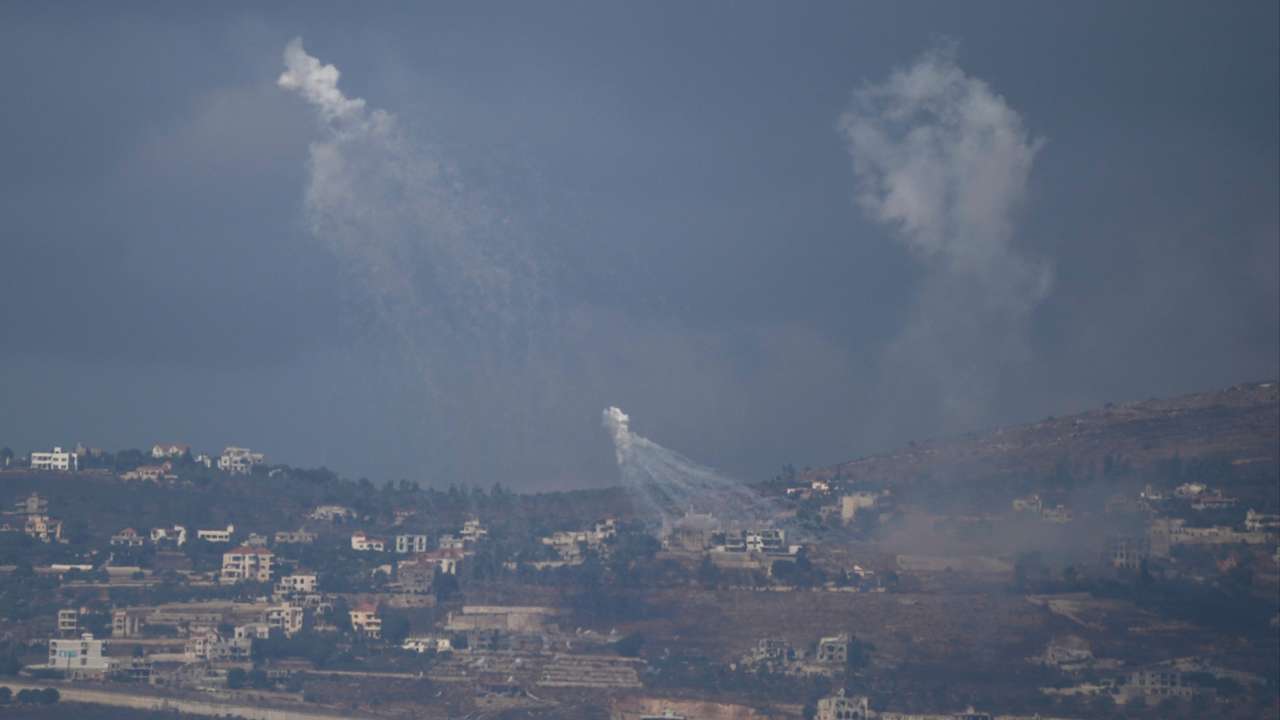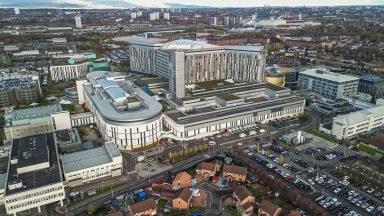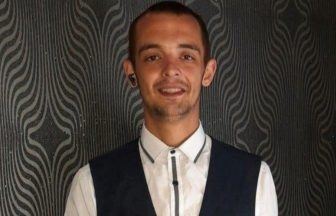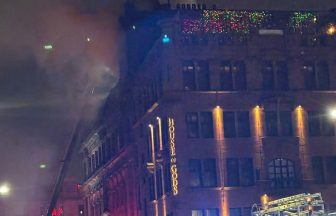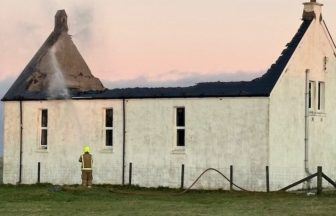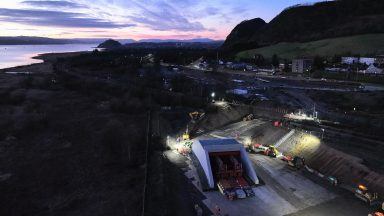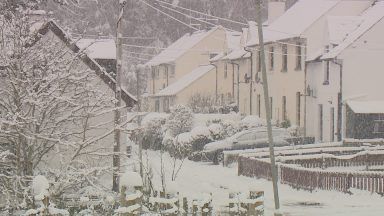Israel has restricted movement along its border regulating entry and exit from the northern communities
- The Israeli military has entered southern Lebanon, launching a “targeted ground operation” against Hezbollah
- The US said Israel’s attacks were “limited operations focused on Hezbollah infrastructure near the border”
- Israel has created military zones in several northern communities along its border
- Benjamin Netanyahu has warned Israel’s enemies there is “nowhere” in the Middle East they cannot reach
- Hezbollah has vowed to keep on fighting despite the assassination of its top leadership
Israeli troops have entered southern Lebanon in what the Israeli Defence Forces (IDF) called “limited, localised and targeted raids against Hezbollah terror targets”.
In a statement, the IDF said the targets “are located in villages close to the border and pose an immediate threat to Israeli communities in northern Israel”.
It comes after the Israeli security cabinet approved the next phase of its operation in Lebanon.
Israeli media reported the decision on Monday night as further strikes deep into Lebanon were carried out and military raids across the border began.
“The Israeli Air Force and IDF Artillery are supporting the ground forces with precise strikes on military targets in the area,” the IDF said in a statement.
It added there would be “no long-term occupation”, but officials declined to say how deep Israeli troops would move into Lebanese territory.
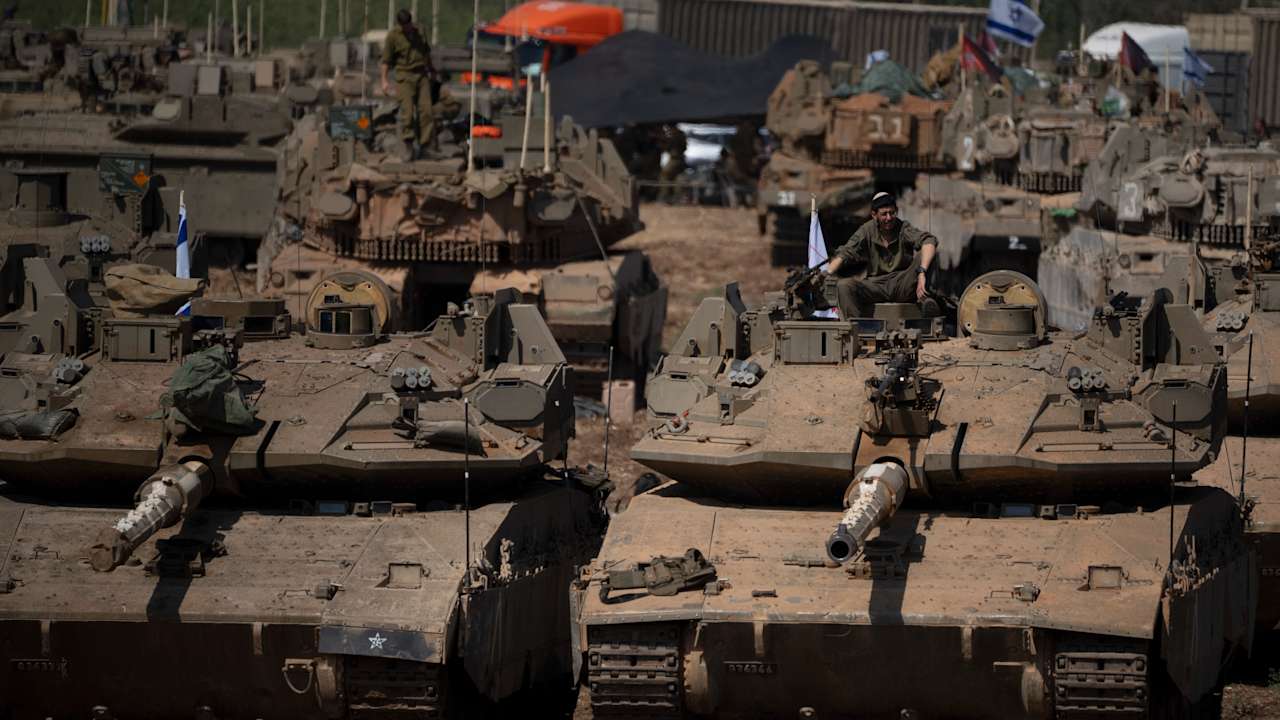
US officials say Israel has informed them they have launched raids into Lebanon and declared three of its northern communities as a “closed military zone”.
State Department spokesman Matthew Miller described the attacks as “limited operations focused on Hezbollah infrastructure near the border.”
Israel has restricted movement along its border regulating entry and exit from the northern communities of Metula, Misgav Am and Kfar Giladi Areas.
Its army has heavily beefed up forces along the border with Lebanon in recent days, and commanders have said they are prepared to send in forces if the government gives the order.
Meanwhile, a drone boat laden with explosives crashed into a ship in the Red Sea on Tuesday, marking the first attack on commercial shipping in weeks.
No one has taken responsibility, but Yemen’s Houthi rebels are believed to be behind the blast.
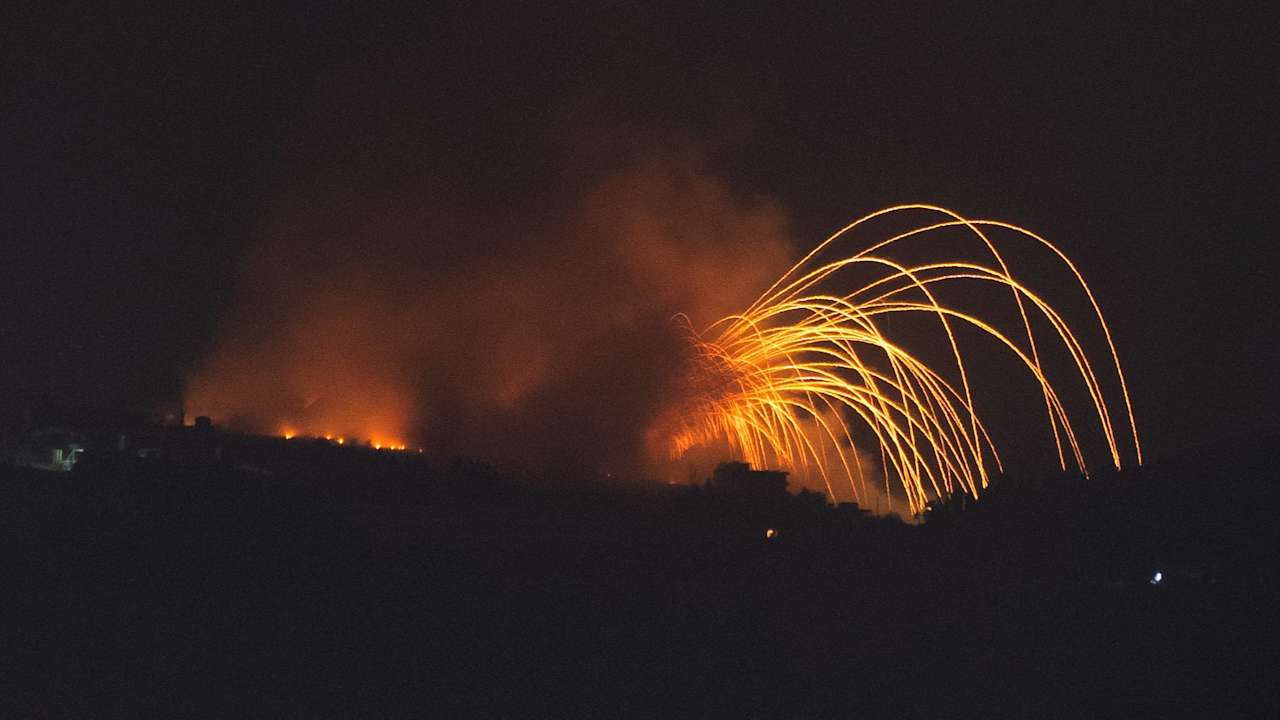
Chris Coyle, a resident of northern Israel, said the army had erected gates and checkpoints throughout the region and positioned scores of tanks along the border in recent days.
“They’re certainly getting ready to go in,” he said.
There were no reports of direct clashes between Israeli troops and Hezbollah militants on Lebanese soil.
Following the killing of Hezbollah leader Hassan Nasrallah the group has vowed to keep on fighting.
What can Israeli ground forces expect from Hezbollah fighters if they do enter Lebanon, ITV News Correspondent Geraint Vincent explains
Deputy leader Naim Kassem, in his first speech since their leader’s death was announced, said Hezbollah were ready if Israel launched a ground offensive into Lebanon.
In a televised address following the deaths of many within Hezbollah’s top chain of command, he said: “Israel was not able to affect our (military) capabilities.
“There are deputy commanders and there are replacements in case a commander is wounded in any post.”
Over the past week, Israel has killed seven high-ranking Hezbollah commanders and officials. Iran, Hezbollah’s main backer and sponsor, has vowed to retaliate.
Nasrallah, who led Hezbollah for 32 years, was killed in a strike on its headquarters in the southern suburbs of Beirut on Friday.
As deputy secretary-general, Kassem will be the militant group’s acting leader until a replacement for Nasrallah is chosen.
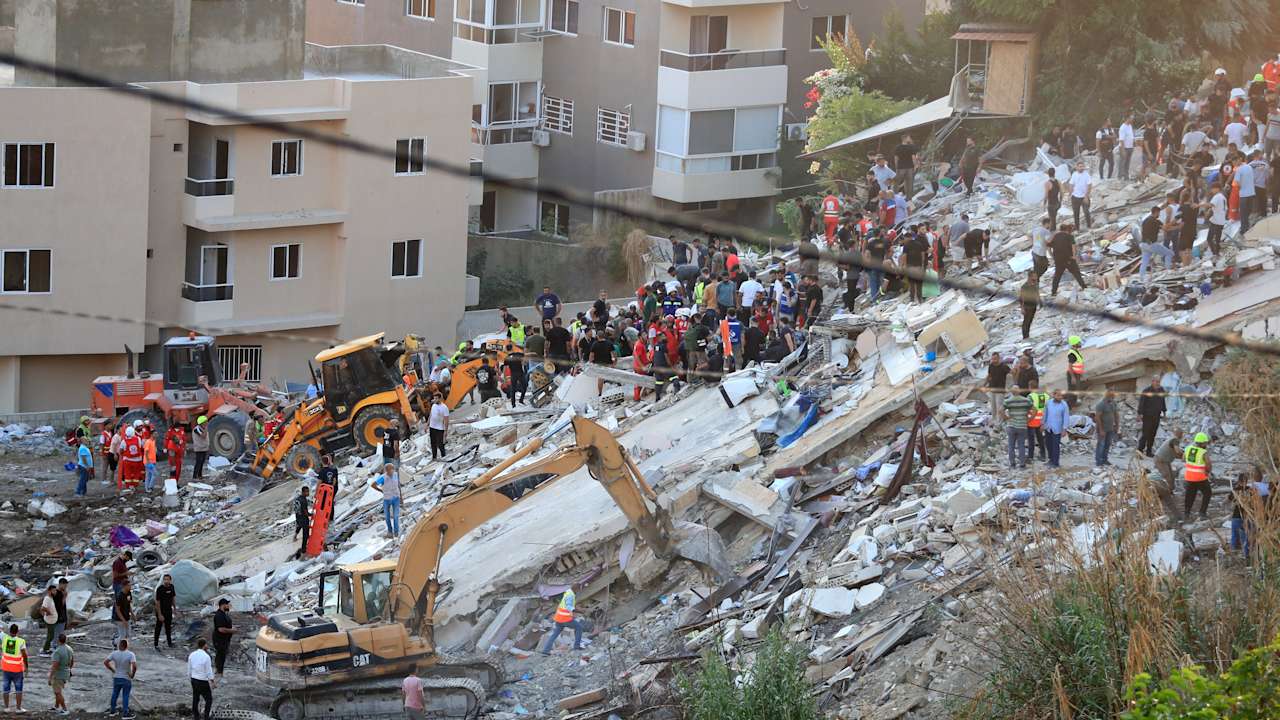
Israel carried out attacks on central Beirut on Monday, after a weekend of dramatic missile strikes against its enemies in the Middle East – including in other parts of Lebanon and Yemen.
Monday morning’s strike, which hit an apartment block and killed at least one person, marks the first time Israel has targeted the centre of Beirut since the recent conflict began on October 7.
Recent attacks have centred on the city’s southern suburbs, where Hezbollah has a strong presence.
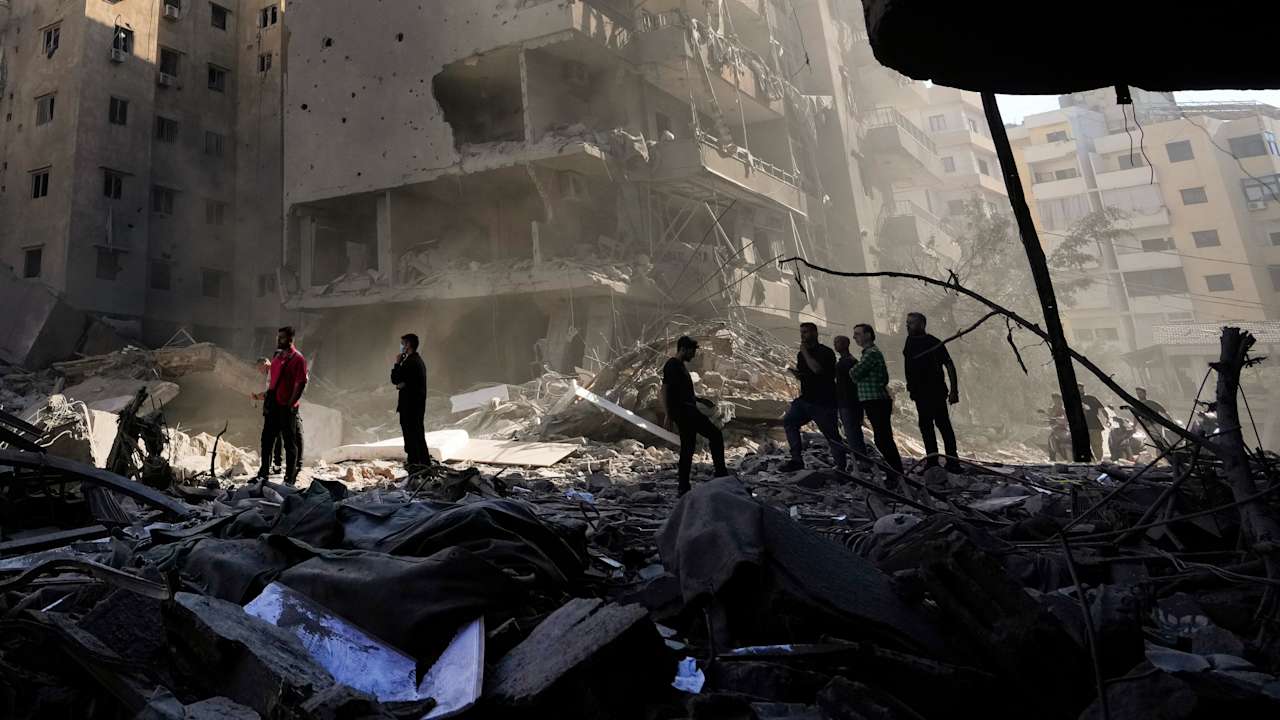
Over the past ten days, more than 1,000 people have been killed in Lebanon, according to the country’s health ministry. Nearly a quarter of those have been women and children.
Recent fighting in the country may have displaced up to a million people, the ministry said.
Meanwhile, Foreign Secretary David Lammy reiterated calls for Britons in Lebanon to leave, saying that the government would do “all that we can” to assist people in fleeing.
Speaking to broadcasters on Monday evening, Lammy warned that the situation on the ground is “fast-moving”.
Lammy said he had spoken to US Secretary of State Antony Blinken and said they both agreed that “the best way forward is an immediate ceasefire”.
Asked about advice he may have for Britons who are in Lebanon, he said: “We will do all that we can to assist people to get out and we have secured places on commercial flights that are flying tomorrow so that UK nationals can get out.
“I urge them to leave because the situation on the ground is fast moving.”
Follow STV News on WhatsApp
Scan the QR code on your mobile device for all the latest news from around the country


